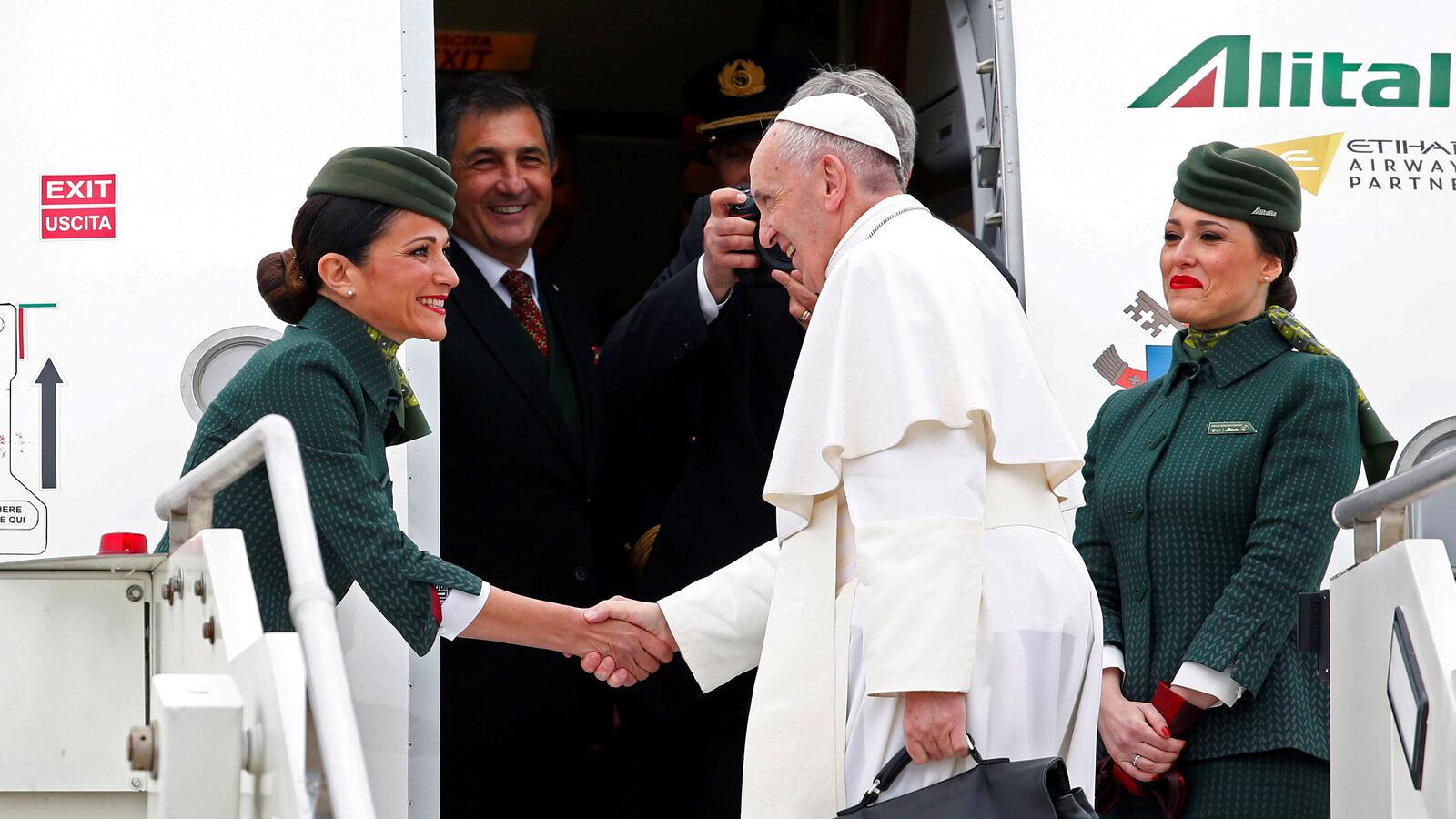ROME—At least one thing you could always count on when flying Alitalia was that they’d never try to pawn off sticky pasta as an actual meal—even back in economy. The coffee was always good, the flight attendants were always stylish, and the queue to board always proved that Italians simply don't do well with standing in line. But it was also a symbol of all that is wrong with Italy, the complacency with ineptitude, the labyrinth of labor laws that keep businesses alive on life support long after the plug should be pulled, and corruption, which is often endemic in Italian failures.
In many ways the last of the Dolce Vita carriers, Alitalia ended its run on Thursday evening with a flight from Sardinia to Rome. The once grand airline, which carried popes on their apostolic voyages, movie stars to Hollywood on the Tiber during the heydays of la Dolce Vita, Italian dignitaries on state visits, winning soccer teams back home, and fallen soldiers back to Italy for the last 74 years ended with a sad whimper. A flight attendant fought back tears as she welcomed the final passengers on board. “Signore e signori [ladies and gentlemen], thank you for flying with us for 74 years,” she said. “Today is the last flight for Alitalia.”
But few Italians are shedding tears for their national airline, which has sucked up more than $15 billion in state-funded bailouts since 1974—nearly $10 billion of that in the last three years alone.
Behind the stoic faces of the last flight crew as they disembarked for the final time is a history of chaos. Forty years of being drip-fed by taxpayers and 7,356 layoffs mark the last days of the terminally troubled airline. “A state disaster, one of the worst, for which our political class has been responsible for four decades,” journalist Francesco Cancellato wrote in what has been the airline’s most popular obituary. “And that we will continue to pay for in the years to come.”
In the last decade when other airlines were enjoying the glory days of pre-pandemic travel, Alitalia refused to spin off a budget airline or even cheapen its base prices, and kept its fares far too high—even increasing the price of airfare by 20 percent on popular routes from Rome to New York City or Milan to Paris—counting on loyalty to keep Italians from straying. But that lack of strategy when most other airlines were slimming down to feed the frenzy of fast travel led to a loss of more than 8 million passengers in the last ten years who found better deals elsewhere.
The names of politicians who used the airline for political gain, from Silvio Berlusconi, who banked his 2008 campaign on why the airline should be saved, to the government-appointed executives who tried to save the airline, reads like a list of “who's not” in Italy as even the most successful minds were unable to wrangle the weight of the company's contracts with employees, suppliers, and airports, which ultimately bled this historic airline dry.
When COVID-19 crippled the travel industry, Alitalia—which in the 1960s was second only to British Airways and Air France—was already limping. Newly minted prime minister Mario Draghi, a staunch economist, hammered the final nail in the airline's coffin by saying bailouts in a post-pandemic era were through.
Starting Friday, a scaled-down mini version of the airline, called far less sexy Italia Trasporto Aereo or ITA, will pick up some of its routes. ITA—which will be fully owned by the Italian government—will inherit 2,800 of Alitalia’s 10,000 employees to man 52 of 110 of Alitalia’s repainted jets, but they only have until 2025 to become profitable and they won't be bailed out if they're not, according to a prenuptial plan the European Commission signed off on to allow them a deal on assuming some of the fallen former Italian carrier's assets. It's yet to be seen if the pasta will be slimy or the coffee up to par or if Italians will finally get in line.

